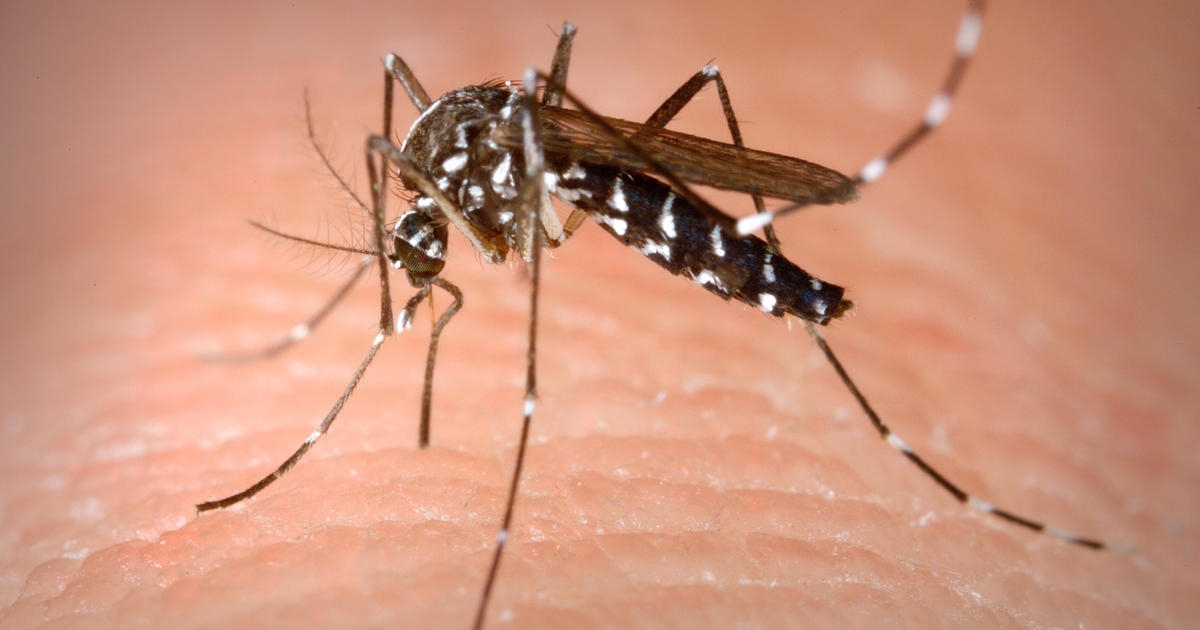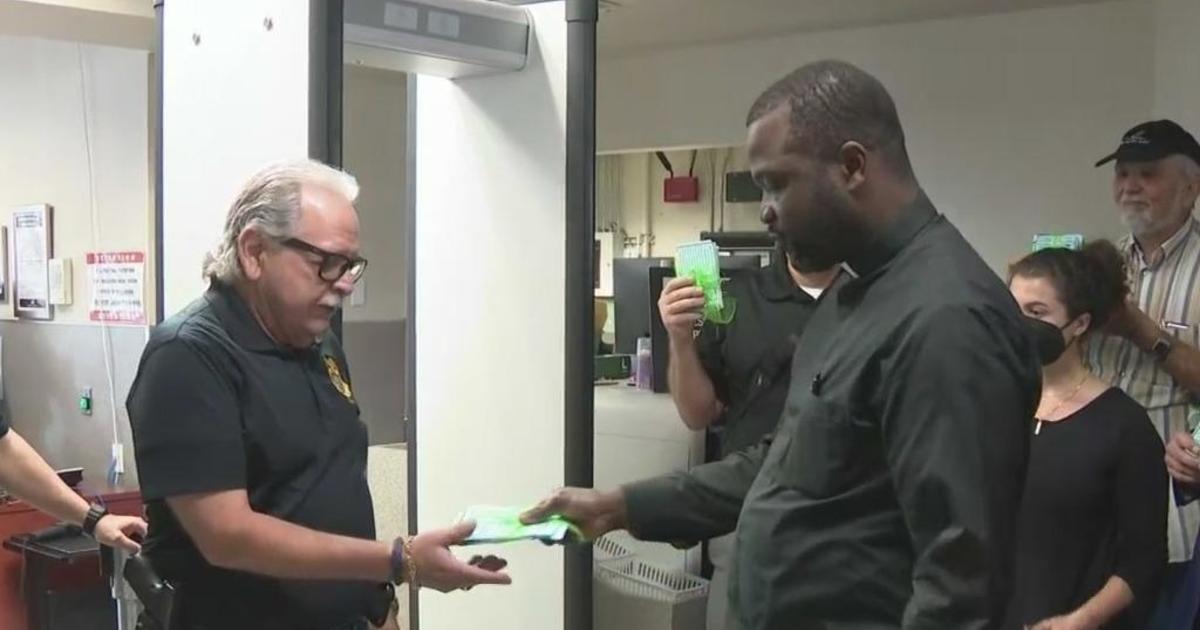Meet The Man On The Front Line Of Stopping Zika In Miami-Dade
Follow CBSMIAMI.COM: Facebook | Twitter
MIAMI (CBSMiami) – In June, the number of Zika cases in Miami-Dade climbed past 50. It's the most of any county in the entire United States. So far all the cases have been travel related.
Experts worry though it's just a matter of time before someone contracts the virus from a local mosquito.
CBS4's David Sutta took a look at who's on the front line of trying to stop Zika before it's too late.
As Sutta talked with Chalmers Vasquez, who is the manager at Miami-Dade Mosquito Control, he felt a bite on his hand. Vasquez pointed over to it almost at the same time.
"That's what we are talking about here?" Sutta ask him.
"That's what we are talking about. That's the Zika mosquito," Vasquez responded.
Sutta said his stomach flipped for a moment.
On his hand was one of the most feared pests in the world today. And yet with a flick of his finger, he could wipe the little nuisance away. Yet it would do nothing to eliminate the risk you and Sutta and everyone else faces when it comes to Zika in South Florida.
Vazquez explained to Sutta how this certain kind of mosquito works.
"It will bite you in the ankles. It will bite you in any exposed areas that you have," he said. "But it's very, very careful."
Since Zika made headlines in the United States, Vazquez has been a busy guy.
He's lost count of the number of interviews he's done.
"No less than 50," he said – confident he's underestimating.
He's been on TV in Germany, Russia, Singapore and a few other places he's never heard of.
When asked if that's normal to have so much attention on Miami-Dade County, he paused.
"In 2004, we had 20 cases of West Nile virus in our county, even two people died. And we did not have this kind of interest that this is generating now," he said.
He thinks technology may have something to do with it.
There is a lot of interest in Zika, particularly the defects it causes on newborns.
The pandemic swept South America and is pushing north.
Vasquez, with a staff of less than 20 inspectors, is the front line in trying to stop Zika's spread.
Can Vazquez beat back Zika with 18 people and some seasonal employees?
"No, even if we have 100. The name of the game is to eliminate. Remember the Brazilians have 200,000 soldiers in Rio de Janeiro eliminating mosquitos. So you can tell what you need to eliminate this problem," he said.
When you think of mosquito control, you likely think of trucks where they spray off the back as they cruise a neighborhood.
Sometimes they will deploy airplanes to do aerial spraying.
But Mosquito Control believes both techniques are ineffective against the mosquitos that carry Zika.
Instead, it's more of a hand-to-hand combat situation.
The mosquitos stay in shaded areas, under cover and often are missed by the falling chemicals.
This means inspectors must go from yard to yard spraying, poking and checking for standing water. When they find it, they often find little mosquito larvae flopping around.
Sutta watched as an inspector checked a rain barrel. It was loaded – a literal barrel of mosquitos.
The inspector knocked the rain barrel over and then placed the container upside down, thus killing the habitat.
"What really works in this case is that we come out and we eliminate the mosquitos, the containers breeding mosquitos," Vazquez said.
It's an overwhelming task though.
With 240-square miles of residential neighborhoods, his work is impossible.
The best chance to beat back Zika, from his perspective, is for homeowners to eliminate standing water around their homes.
"This is the responsibility of the homeowner," he said.
The mosquitos that carry Zika usually only come out at dusk and dawn. They are considered sneaky – the kind that bite your ankles or sneak up from behind.
Mosquito Control recommends you cover up or wear DEET.
They also recommend you spray Mosquito Bits or Altosid on plants in your yard. The two products can be found at your local hardware store.



